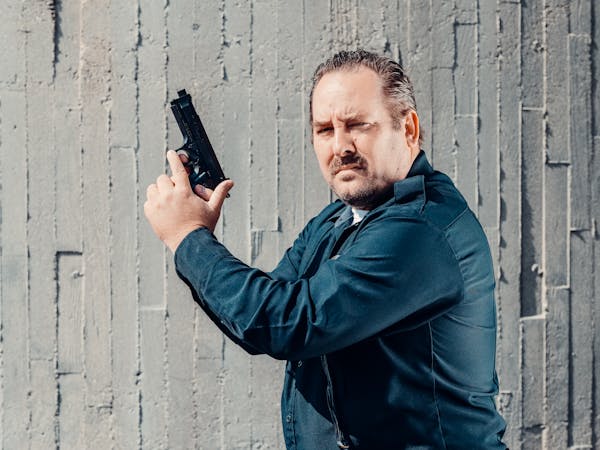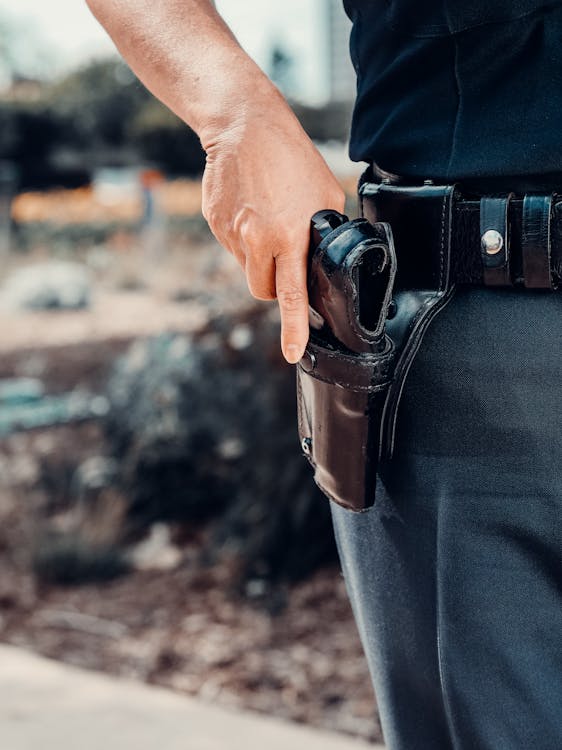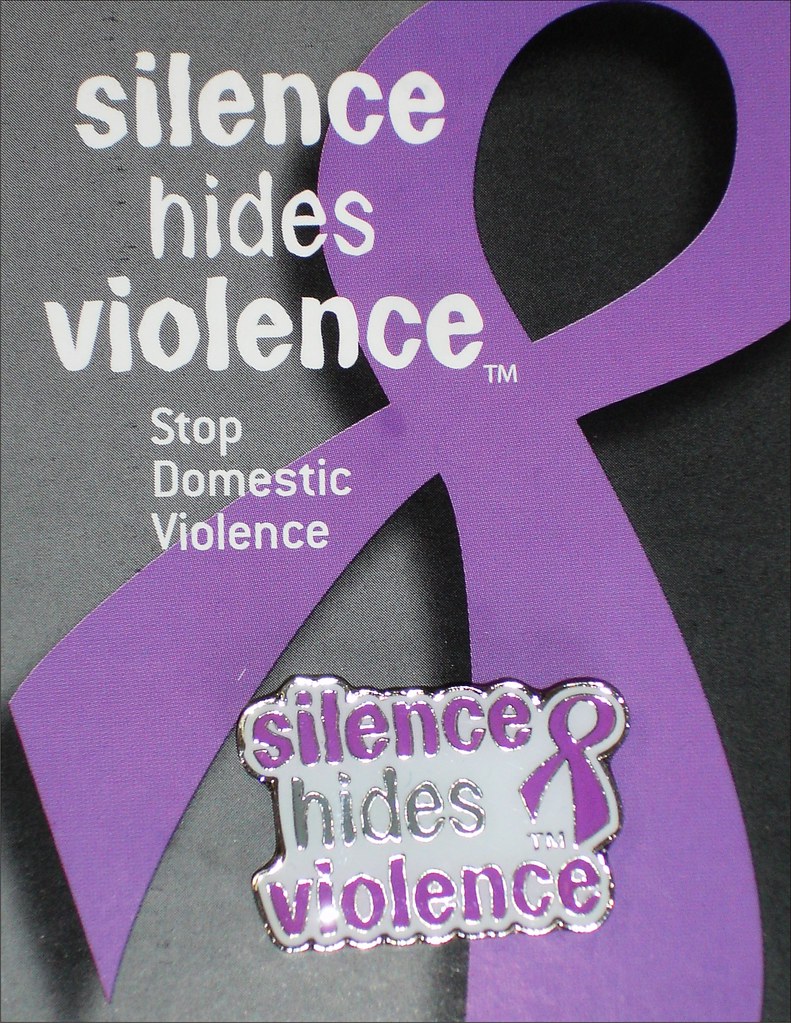
Gun control law has been upheld by the Supreme Court, ensuring protection for victims of domestic violence.

Introduction:
Welcome to today’s news update. In a landmark decision, the Supreme Court has upheld a federal gun control law aimed at protecting domestic violence victims. This ruling represents a significant moment in the ongoing debate over gun rights and public safety in the United States.
Main Story of Gun Control Law:
Gun control law has been upheld by the Supreme Court, ensuring protection for victims of domestic violence. In an 8-1 decision, the justices supported the 1994 law that bans individuals under restraining orders from possessing firearms. This ruling overturns a previous decision by the federal appeals court in New Orleans, which had struck down the law.
Key Details:
Chief Justice John Roberts wrote the majority opinion, emphasizing that the law makes sense and applies only when a judge determines an individual poses a credible threat of violence. He pointed out that the law is grounded in common sense and is designed to prevent potential harm before it can occur.
Justice Clarence Thomas, however, dissented, arguing that the law is not consistent with the nation’s historical firearm regulations.
Roberts stated that, since the founding, the nation’s firearm laws have included provisions preventing individuals who threaten physical harm to others from misusing firearms.
He criticized some courts for misapplying previous gun rights cases and stressed the importance of balancing historical context with present-day safety needs.

Presidential Reaction:
President Joe Biden praised the ruling, stating that no abuse survivor should fear their abuser getting a gun. He emphasized that this decision ensures continued protection for domestic violence victims and their families.
Biden noted that survivors of domestic violence and their families would still be able to count on critical protections, just as they have for the past three decades.
Biden’s administration has been vocal about the need for stricter gun control measures, and this ruling aligns with their efforts to enhance public safety and reduce gun violence.
The President’s support underscores the importance of the Supreme Court’s decision in maintaining these protections.
Case Background of Gun Control Law:
The case involved Zackey Rahimi, who violated a restraining order by possessing firearms. Rahimi’s case raised concerns that ruling in his favor could undermine the background check system, which has blocked over 75,000 gun sales related to domestic violence in the past 25 years.
During an argument in a parking lot, Rahimi was accused of hitting his girlfriend and later threatening to shoot her. When police identified Rahimi as a suspect in multiple shootings, they found guns in his home despite a domestic violence restraining order prohibiting him from possessing firearms.
During arguments in November, some justices voiced concern that a ruling for Rahimi could jeopardize the background check system that the Biden administration said has stopped more than 75,000 gun sales in the past 25 years based on domestic violence protective orders.
This case was closely watched for its potential to affect other gun ownership laws, including the high-profile prosecution of Hunter Biden.
Biden’s son was convicted of lying on a form to buy a firearm while he was addicted to drugs, and his lawyers have signaled they will appeal.

Historical Context and Judicial Opinions:
Roberts noted that historical firearm laws have always included provisions to prevent those who threaten harm from having guns. He criticized some courts for misapplying past gun rights cases, emphasizing that these precedents were not meant to suggest a law trapped in amber.
Justice Sonia Sotomayor wrote that Roberts’ opinion permits a historical inquiry calibrated to reveal something useful and transferable to the present day, while the dissent would make the historical inquiry so exacting as to be useless. She was among the three liberal justices who dissented in the Bruen case.
Justice Brett Kavanaugh, who was part of the Bruen majority, noted that the court probably will have many more cases about the reach of gun rights because Second Amendment jurisprudence is in its early innings.
It was only in 2008 that the court declared for the first time that the Constitution protects an individual’s right to keep and bear arms.
Justice Clarence Thomas, in his dissent, argued that the law strips an individual of his ability to possess firearms and ammunition without any due process. He claimed that the government failed to produce any evidence that the law is consistent with the nation’s historical tradition of firearm regulation.
Thomas wrote that not a single historical regulation justifies the statute at issue.
Justice Department Response:
After the ruling, Attorney General Merrick Garland said the Justice Department will continue to enforce this important statute, which for nearly 30 years has helped to protect victims and survivors of domestic violence from their abusers.
He emphasized the significance of the Supreme Court’s decision in maintaining the integrity of the law and ensuring ongoing protection for victims.
The Justice Department’s commitment to enforcing the law highlights the ongoing effort to protect vulnerable individuals from potential harm.
Impact on Domestic Violence Victims:
Data shows that firearms are frequently used in domestic homicides. According to the Centers for Disease Control and Prevention (CDC), guns were used in over half of intimate partner killings in 2020.
Advocates stress the importance of maintaining such protective laws, as firearms are the most common weapon used in homicides of spouses, intimate partners, children, or relatives in recent years.

Seventy women a month, on average, are shot and killed by intimate partners, according to the gun control group Everytown for Gun Safety.
This statistic underscores the critical need for laws that restrict access to firearms for individuals who pose a threat to their partners. The Supreme Court’s decision ensures that these vital protections remain in place.
Examples and Case Studies:
The case of Zackey Rahimi is just one example of the potential dangers posed by allowing individuals under restraining orders to possess firearms. Rahimi’s involvement in multiple shootings and his history of domestic violence highlight the importance of stringent gun control measures.
The ruling also has broader implications for other cases where gun ownership laws are being challenged, including the high-profile prosecution of Hunter Biden.
The decision reaffirms the need for a balanced approach that considers both historical context and present-day safety needs.
By maintaining the 1994 law, the Supreme Court has set a precedent that prioritizes the protection of vulnerable individuals over unrestricted access to firearms.
Conclusion and Call to Action on Gun Control Law:
The Supreme Court’s decision reaffirms protections for domestic violence victims against armed abusers. This ruling highlights the ongoing need for effective gun control measures to ensure public safety.
It also emphasizes the importance of historical context in judicial decisions, ensuring that laws evolve to address contemporary issues.
If you or someone you know is experiencing domestic violence, please seek help from local support services or national hotlines. Your safety is paramount.
Thank you for tuning in. Stay informed and stay safe.
Source of this news on Gun Control Law:
You can Visit Our Social Pages:
✅ https://www.linkedin.com/in/salauddin-writer-seo-dataentry/
✅ https://www.facebook.com/profile.php?id=61557149480263
✅ https://www.instagram.com/seoanddataentry/
✅ https://x.com/SalauddinB1980/
✅ https://www.youtube.com/channel/UCCP5sGmyvOw4fuyDkZVO_Sg
To get our services:
🚀 SEO
🚀 Content Writing Strategy and Creative Content Writing












